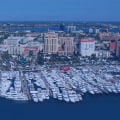Renting a boat can be an exciting and enjoyable way to explore the water, whether you’re planning a leisurely day on a lake, a fishing trip, or a more adventurous excursion on the ocean. However, one of the first questions that arise when considering renting a boat is how much it will cost. The price of renting a boat can vary widely depending on several factors, including the type of boat, the location, the duration of the rental, and any additional services or equipment that may be included. Understanding these factors can help you budget accordingly and ensure you get the most value for your money.
Factors Affecting Boat Rental Costs
Several key factors contribute to the overall cost of renting a boat, making it important to consider each of them before making your reservation. The type of boat you choose is one of the most significant factors in determining the price. For example, small boats like kayaks or paddleboards tend to be less expensive, often costing anywhere from $20 to $50 per hour. Larger boats, such as pontoon boats, speedboats, or fishing boats, can cost significantly more, with prices typically ranging from $100 to $500 per day, depending on the size, power, and features of the boat.
Another important factor is the location of the boat rental. Rental prices can fluctuate based on the demand and popularity of the area where you plan to rent the boat. For example, renting a boat in a popular tourist destination or in major cities like Miami or San Diego might cost more than in a less-visited rural area or small lakeside town. Waterfront locations that attract more tourists will generally have higher rental rates due to increased demand, while more remote areas might offer more affordable options. Additionally, areas with limited boat rental options may charge higher prices simply due to the lack of competition.
The duration of the rental is another key element that impacts the cost. Rentals are typically charged by the hour, half-day, or full-day, with prices increasing as the rental time extends. An hourly rate might range from $50 to $150 for a small boat, while daily rates can go from $200 to $800 for larger vessels. Many boat rental companies offer discounted rates for multiple-day rentals, which can provide a more economical option if you’re planning to rent a boat for an extended period. It's also important to check if there are any additional charges, such as fuel costs, which may not always be included in the quoted price.
Additional Costs to Consider
In addition to the base rental fee, there may be other costs associated with renting a boat. For instance, some boat rental companies require a deposit to ensure the boat’s return in good condition. This deposit is typically refundable as long as the boat is returned without damage. Furthermore, many rental companies offer optional add-ons such as fishing gear, water sports equipment (like wakeboards or waterskis), and safety equipment (such as life jackets or navigational tools). Depending on your needs, these extras can add anywhere from $10 to $50 or more to the overall cost of the rental.
If you’re planning to rent a boat for a day or longer, you may also need to consider additional expenses, such as food, drinks, or any other items you’ll need for your trip. For instance, renting a cooler to store beverages or snacks may cost extra, but it can make your day on the water more enjoyable. Additionally, you may need to pay for parking fees or docking charges if you're renting in a marina or busy harbor area.
In some cases, boat rental companies may also charge for captain services. If you’re unfamiliar with operating a boat or simply prefer to relax and enjoy the scenery, hiring a captain can be a great option. The cost for a captain typically ranges from $100 to $300 per day, depending on the region and the type of boat. Some rentals might also require a valid boating license, particularly for larger or more powerful boats, and there may be a fee for obtaining a temporary boating permit.
Special Considerations
While renting a boat is often an affordable and fun activity, there are a few considerations to keep in mind to ensure you get the best deal. First, make sure to research rental companies in your area or destination to compare prices and amenities. It's also a good idea to read reviews from previous customers to gauge the quality of service and the condition of the boats. Additionally, look for discounts or promotions, especially during the off-season, when rental prices might be lower due to reduced demand.
If you’re planning a trip that includes both boat rental and travel to your destination, it’s essential to plan for your transportation. For example, if you're flying into an area for your boating adventure, consider using a sedan car service to DCA or another nearby airport. This can provide a stress-free and comfortable ride, eliminating the need for taxis or public transport, and ensuring that you arrive on time for your rental without worrying about parking or delays.
Conclusion
The cost of renting a boat can vary significantly based on factors such as the type of boat, location, duration, and additional services. Small, simple boats are generally more affordable, while larger vessels and those with extra features or services will cost more. Always be sure to consider the full range of potential costs, including any extra equipment, fuel, or captain services, when budgeting for your boat rental. With proper planning and research, renting a boat can be an affordable and enjoyable experience that enhances your time on the water, whether you’re fishing, relaxing, or exploring new places.






